

Are you struggling to keep track of your data assets? Do you find it challenging to document your data assets and maintain data quality? If so, you’re not alone.
In today’s data-driven world, managing and documenting your data assets is crucial for your business success. Data dictionary tools can help you achieve this goal by providing a centralized and organized way to document and manage your data assets.
Managing and documenting data assets can be a daunting task, especially when dealing with a large amount of data and complex data structures. Fortunately, there are data dictionary tools that can help you simplify this process and improve your data management practices.
In this post, we’ll explore some of the best data dictionary tools available, both commercial and open-source, and will find out their features, benefits, and drawbacks.
Content showIf you are looking for a way to manage and organize your data, open-source data dictionary tools might be the perfect solution for you. These tools help you define, document, and maintain metadata about your data, making it easier to understand and use.
Data dictionary tools allow you to define data elements, describe their properties and relationships, and document their usage. With a data dictionary, you can easily track changes to your data, ensure data consistency, and improve data quality.
A data dictionary can be defined as a collection of metadata such as object name, data type, size, classification, and relationships with other data assets. A data dictionary acts as a reference guide on a dataset.
In this section, we will introduce you to some of the most popular commercial data dictionary tools available today. These tools can help you document, understand, and catalog your data with ease.
Dataedo is a popular tool that helps you document your database, understand your data, and create a data dictionary. With Dataedo, you can easily create a data dictionary that includes information about your data, such as names, definitions, and attributes.
You can also use Dataedo to create ERDs (Entity Relationship Diagrams) and business glossaries. Dataedo is available for Windows, and it provides a user-friendly interface that makes it easy to use.

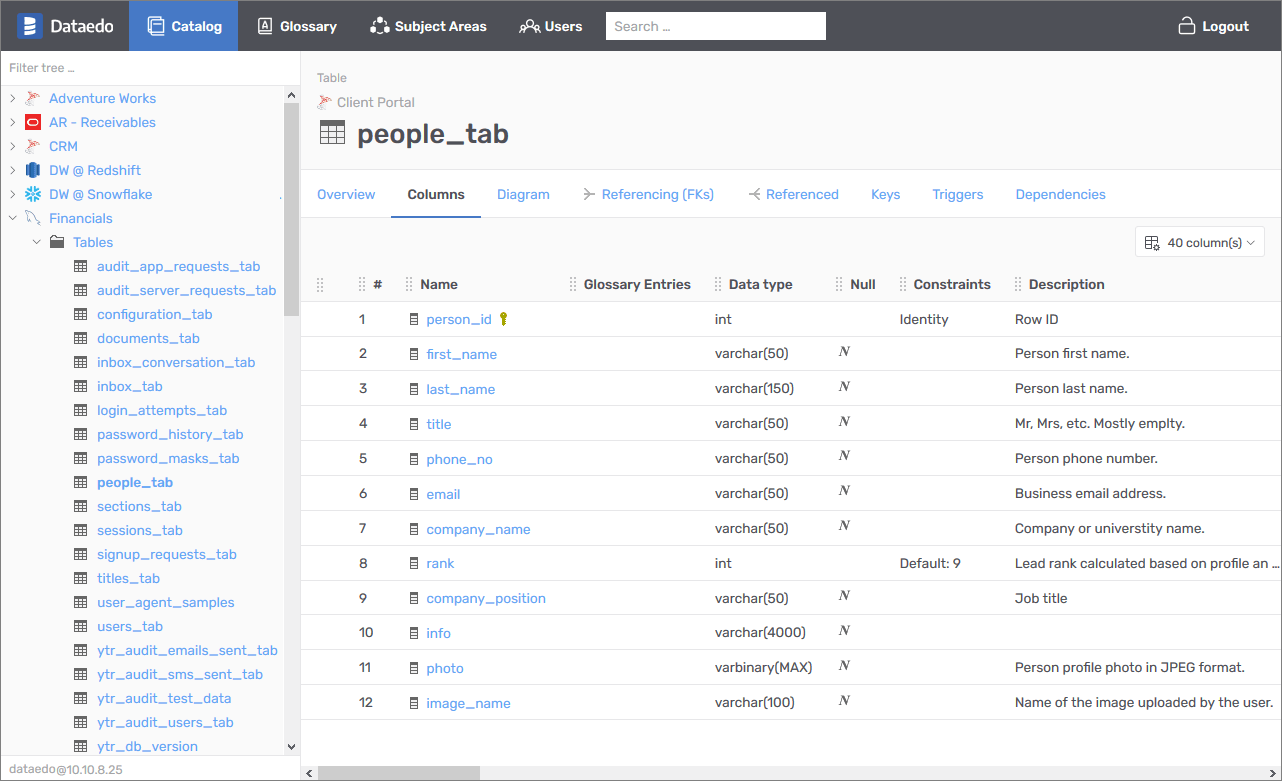
Redgate SQL Doc is another popular tool that you can use to document your database and create a data dictionary. With Redgate SQL Doc, you can create documentation for your SQL Server databases, including tables, views, stored procedures, and more.
You can also customize the documentation to meet your specific needs. Redgate SQL Doc is available for Windows, and it provides a simple and intuitive interface that makes it easy to use.


ApexSQL Doc is a powerful data dictionary tool that you can use to document your SQL Server databases and create a data dictionary.
With ApexSQL Doc, you can create documentation for your databases, including tables, views, stored procedures, and more. You can also customize the documentation to meet your specific needs. ApexSQL Doc is available for Windows, and it provides a user-friendly interface that makes it easy to use.

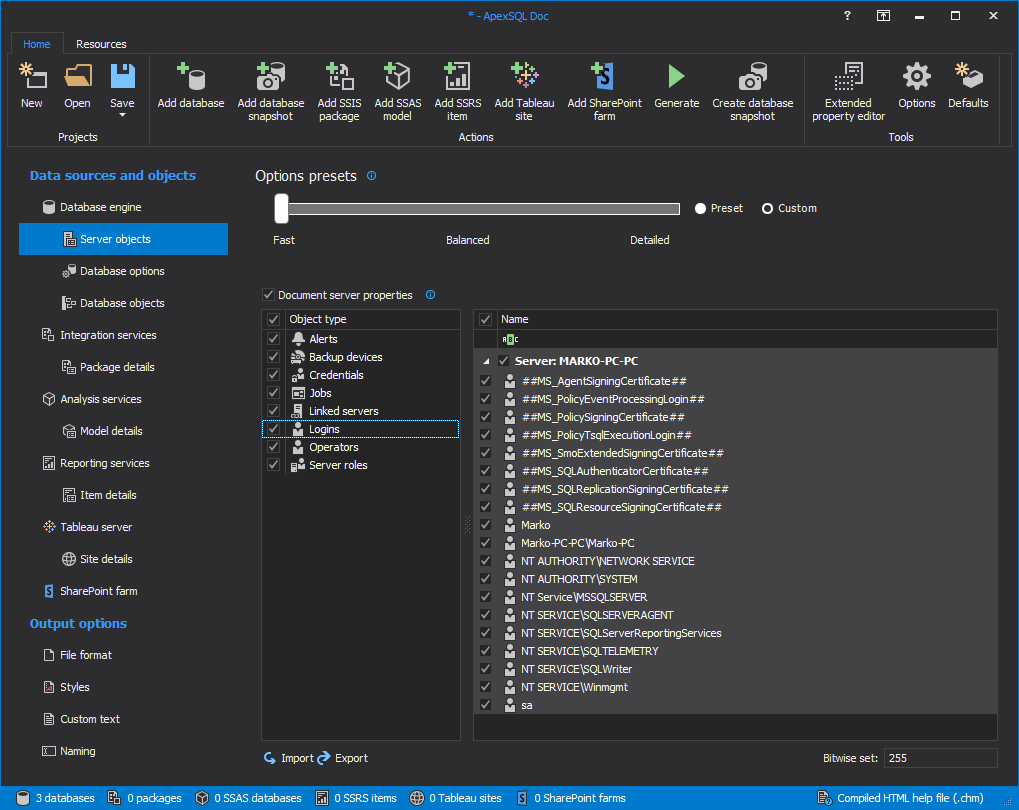
Vertabelo is a data dictionary tool that you can use to document your SQL Server databases and create a data dictionary. Its features make it a viable option for businesses and organizations of all sizes.
With Vertabelo , you can create documentation for your databases, including tables, views, stored procedures, and more. You can also customize the documentation to meet your specific needs.

Alation is a commercial data dictionary tool that helps you document and manage your data assets. With Alation , you can create documentation for your databases, including tables, views, stored procedures, and more. You can also customize the documentation to meet your specific needs.

Alation is a machine learning data catalog. Once connected to data sources in the environment, Alation automatically indexes data and populates catalog pages by source
| Tool | Features |
|---|---|
| Dataedo | Data documentation, Customizable templates, Data modeling, Collaboration, Search and filter |
| Redgate SQL Doc | Data documentation, Customizable templates, Data visualization, Search and filter |
| ApexSQL Doc | Data documentation, Customizable templates, Data visualization, Search and filter |
| Vertabelo | Data documentation, Data modeling, Collaboration, Version control, Security |
| Alation | Data catalog, Automated documentation, Data lineage, Collaboration, Machine learning |
Open-source data dictionary tools are software applications that are freely available to the public. They are often developed and maintained by a community of volunteers, who work together to improve the software and add new features. Open-source tools are a great option for organizations that are on a tight budget or want to avoid vendor lock-in.
Some of the benefits of using open-source data dictionary tools include:
Let’s have a look at some of the best open-source dictionary tools
Database Note Taker is a simple and easy-to-use open-source tool that you can use to create a data dictionary for your database. With Database Note Taker, you can easily document your database, including tables, columns, and relationships.
You can also add notes and comments to your documentation to provide additional context. Database Note Taker is available for Windows, and it provides a user-friendly interface that makes it easy to use.

Here are some of the features of Database Note Taker:

PhpMyAdmin is a popular open-source data dictionary tool that helps you document and manage your data assets. Frequently used operations in PhpMyAdmin are managing databases, tables, columns, relations, indexes, users and permissions, and can be performed via the user interface, while you still have the ability to directly execute any SQL statement
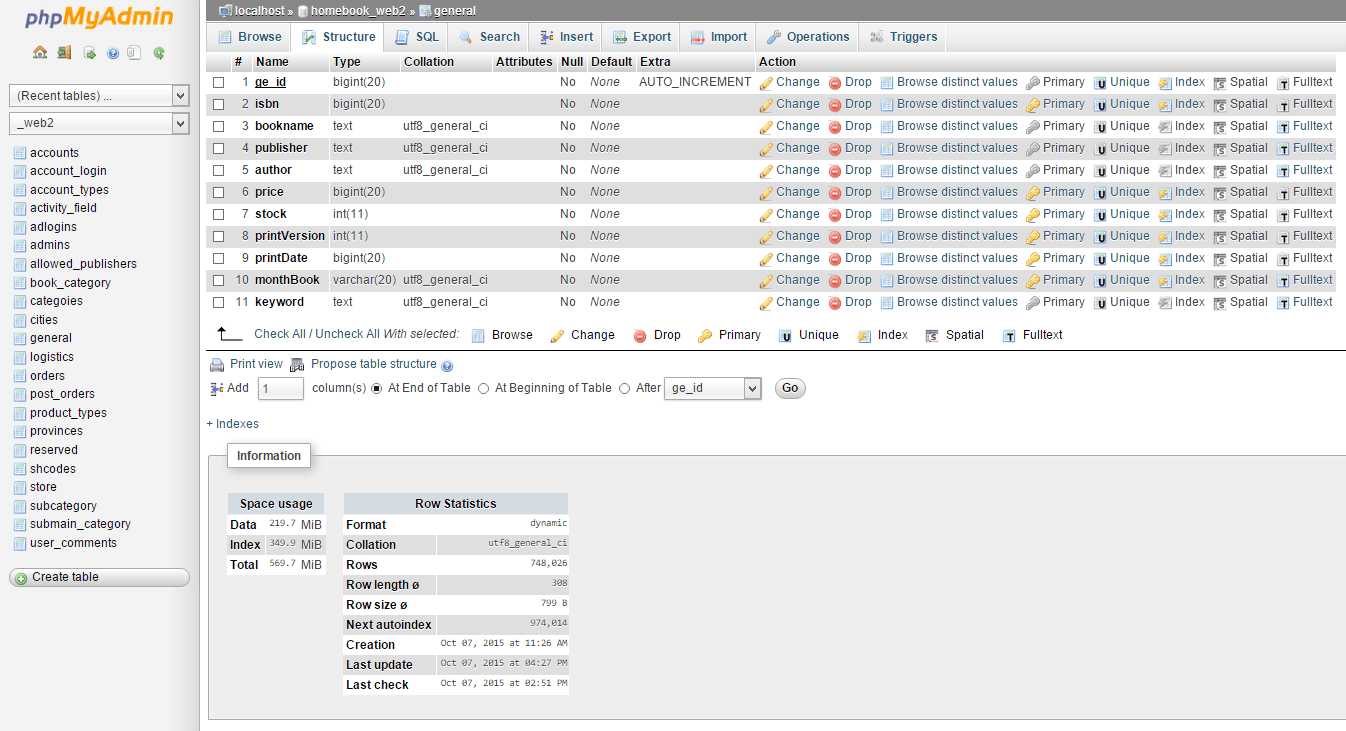
Here are some of the features of PhpMyAdmin Note Taker:
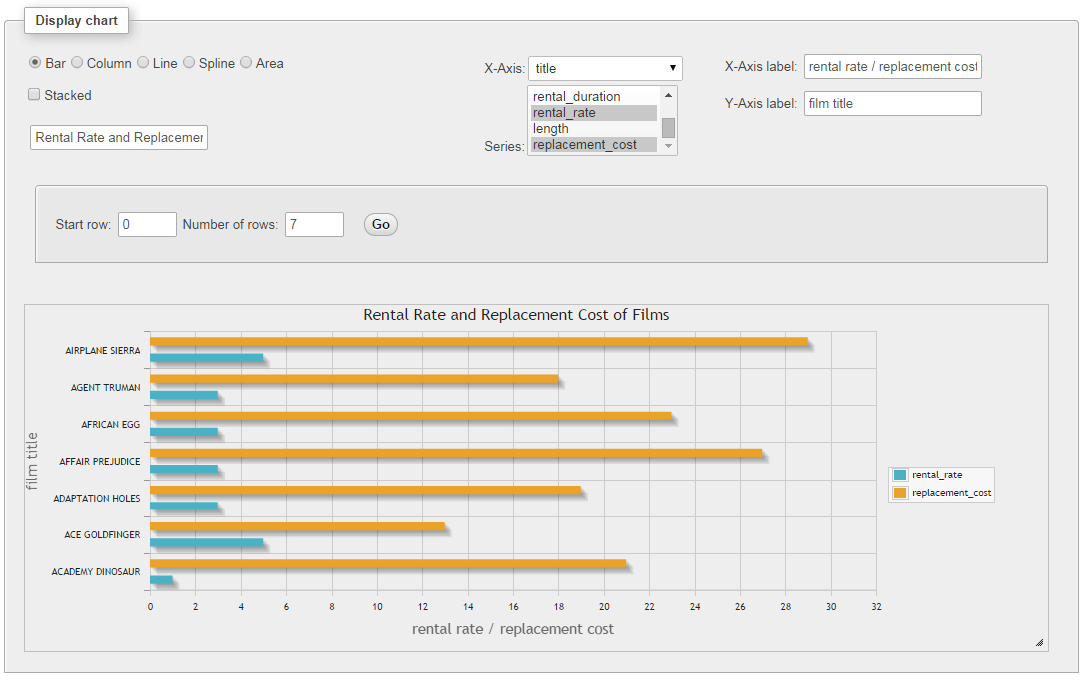
Amundsen is a popular open-source data catalog tool that you can use to document your data and create a data dictionary. With Amundsen, you can easily discover, understand, and use your data.
Amundsen provides a user-friendly interface that makes it easy to search for data, view data lineage, and collaborate with your team. Amundsen is available for Windows, and it provides a simple and intuitive interface that makes it easy to use.
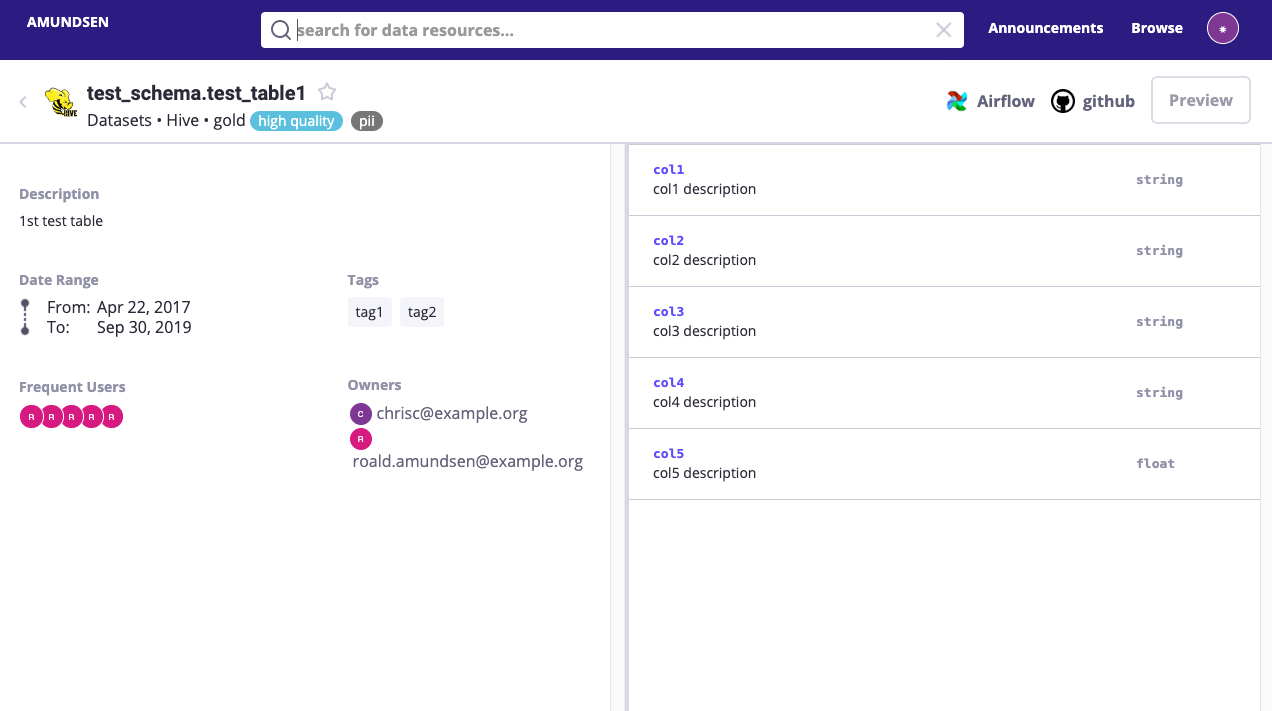
Here are some of the features of Amundsen
| Tool | Features |
|---|---|
| Database Note Taker | Data documentation, Customizable templates, Data visualization, Search and filter |
| PhpMyAdmin | Data documentation, Customizable templates, Data modeling, Search and filter |
| Amundsen | Data catalog, Automated documentation, Data lineage, Collaboration, Search and filter |
In conclusion, these are some of the most popular open-source data dictionary tools available today. Whether you are looking for a simple tool or a powerful tool, there is something for everyone. With these tools, you can easily document, understand, and catalog your data with ease.
When it comes to data dictionary tools, there are a few key components that you should be aware of. These components are essential to the functionality and effectiveness of any data dictionary tool. In this section, we’ll take a closer look at these components and what they entail.
One of the most important components of any data dictionary tool is its ability to interact with databases. This includes the ability to connect to databases, extract metadata, and analyze database schema and data objects. A good data dictionary tool should be able to work with a variety of database management systems (DBMS), including popular systems like SQL Server and MySQL.
Another important component of data dictionary tools is their ability to manage and organize data. This includes features like metadata management, data catalogs, and inventory management. A good data dictionary tool should be able to help you organize your data into logical categories and provide detailed information about each piece of data.
Data dictionary tools should also have features that enable collaboration and usage by teams. This includes the ability to share and collaborate on data dictionaries, as well as the ability to track changes and updates. A good data dictionary tool should also provide usage analytics, so you can see how your data is being used and by whom.
Finally, data dictionary tools should have strong technical capabilities that enable customization and integration with other tools. This includes the ability to customize the data dictionary interface, as well as the ability to integrate the tool with other data management and analysis tools. A good data dictionary tool should also be compatible with various operating systems, including Windows and Linux.

Moving on in our data dictionary tools journey
One of the great benefits of using a data dictionary tools is the ability to extend and customize them to fit your specific needs. As a developer, you have the freedom to modify the source code and add new features to the tool. This means you can create a data dictionary that is tailored to your organization’s unique data needs.
For open-source alternatives, most open-source data dictionary tools are hosted on GitHub, which makes it easy to fork the repository and start making changes. You can also contribute your changes back to the community by submitting a pull request. This is a great way to give back to the open-source community and help improve the tool for everyone.
When extending and customizing data dictionary tools, it’s important to keep in mind the tool’s architecture and design. Some tools may be more modular than others, which makes it easier to add new features without affecting the existing codebase. Others may have a more monolithic architecture, which means you’ll need to be more careful when making changes.
To help you get started with extending and customizing data dictionary tools, here are a few tips:
Data dictionary tools often come with advanced data discovery and search capabilities that enable you to explore and analyze your data sets in a more efficient and intuitive way. These tools allow you to easily discover and understand the data sources you have available, and to search for specific data sets or data elements that you need for your analysis.
With data discovery and search capabilities, you can easily explore your data sources, datasets, and data elements, and understand how they relate to each other. You can also search for specific data sets or data elements using keywords, tags, or other search criteria, and quickly find the data you need for your analysis.
Some of the key features of data discovery and search capabilities in data dictionary tools include:
When working with data, it’s essential to ensure that the information is accurate, consistent, and reliable. This is where data quality and governance come into play. Data quality refers to the overall accuracy, completeness, and consistency of data, while data governance is the process of managing the availability, usability, integrity, and security of the data used in an organization.
Data dictionary tools can help with data quality and governance by providing a centralized repository of metadata that describes the data used in an organization. This metadata can include information such as data types, data sources, data owners, and data definitions. By having this information in a single location, it becomes easier to manage and ensure the accuracy and consistency of the data.
One of the most significant challenges in maintaining data quality and governance is managing data inconsistencies. Data inconsistencies can occur when there are discrepancies in the data used across different systems or departments.
Another important aspect of data quality and governance is the use of a business glossary. A business glossary is a collection of terms and definitions used in an organization. These terms and definitions can help ensure that everyone is using the same language when discussing data, which can help reduce confusion and improve data quality.
One of the most important features to look for in a data dictionary tool is the ability to import and export data. This allows you to easily share your data with others or move it between different systems.
Most data dictionary tools support importing and exporting data in a variety of formats, including PDF, HTML, and spreadsheet formats like CSV. This makes it easy to share your data with others, regardless of what tools they are using.
Exporting data is just as important, as it allows you to easily share your data with others or move it between different systems. Many open-source data dictionary tools allow you to export data in a variety of formats, including PDF, HTML, and spreadsheet formats like CSV.

When it comes to data dictionary tools, there are a variety of advanced features that can make them even more useful for your needs. Here are some of the most important advanced features to look for:
One of the most important features of any data dictionary tool is an intuitive and user-friendly interface. This makes it easier for you to navigate the tool and find the information you need quickly and easily. Look for a tool that has a modern and easy-to-use interface, with clear navigation and descriptive fields.
Another important feature of data dictionary tools is the ability to recognize and understand different data types and contexts. This can help you to better analyze and interpret your data, as well as identify any potential issues or inconsistencies. Look for a tool that can automatically fetch and analyze metadata from your data resource and provide detailed information about the data types and context.
Data models and lineage are also important features of data dictionary tools. These features can help you to better understand how your data is structured and how it is related to other data sources. Look for a tool that can provide detailed data lineage information, as well as support for different data models and schema formats.
Collaboration capabilities are another important feature to look for in a data dictionary tool. This can help you to work more effectively with your team and share information and insights more easily. Look for a tool that includes collaboration features such as commenting and sharing, as well as support for multiple users and roles.
Finally, metadata capabilities are an essential feature of any data dictionary tool. This includes the ability to capture and store detailed technical information about your data, as well as provide templates and other resources to help you better manage your metadata. Look for a tool that includes robust metadata capabilities, including support for different metadata standards and the ability to customize metadata fields and templates.

In today’s data-driven world, managing and documenting your data assets is crucial for your business success. Data dictionary tools can help you achieve this goal by providing a centralized and organized way to document and manage your data assets.
Whether you’re a small business or a large enterprise, there are various data dictionary tools available to meet your needs. From open-source to commercial solutions, you can choose the one that fits your budget, requirements, and preferences.
| Tool | Open-Source | Features |
|---|---|---|
| Dataedo | No | Data documentation, Customizable templates, Data modeling, Collaboration, Search and filter |
| Redgate SQL Doc | No | Data documentation, Customizable templates, Data visualization, Search and filter |
| ApexSQL Doc | No | Data documentation, Customizable templates, Data visualization, Search and filter |
| Vertabelo | No | Data documentation, Data modeling, Collaboration, Version control, Security |
| Alation | No | Data catalog, Automated documentation, Data lineage, Collaboration, Machine learning |
| Database Note Taker | Yes | Data documentation, Customizable templates, Data visualization, Search and filter |
| PhpMyAdmin | Yes | Data documentation, Customizable templates, Data modeling, Search and filter |
| Amundsen | Yes | Data catalog, Automated documentation, Data lineage, Collaboration, Search and filter |
Dataedo is a data dictionary tool that allows you to create comprehensive documentation of your databases. It works by connecting to your database and extracting metadata information about your tables, views, and columns. You can then customize the documentation by adding descriptions, comments, and other relevant information.
Microsoft provides several data dictionary tools that can help you document your databases. Some of the popular Microsoft data dictionary tools are SQL Server Management Studio, SQL Doc, and ApexSQL Doc. These tools allow you to create comprehensive documentation of your databases and customize it to meet your specific needs.
The best open-source data dictionary tools depend on your specific needs and requirements. Some popular open-source data dictionary tools that are widely used include Apache Atlas, DataHub, and Dataedo Community. These tools offer features like data profiling, data lineage, and data governance.
Github is a popular platform for open-source projects, and there are several data dictionary tools available there. Some of the popular open-source data dictionary tools available on Github are DataHub, Data Dictionary Creator, and Data Dictionary Manager.
There are several free data dictionary tools available for SQL Server that can help you document your databases. Some of the popular free data dictionary tools for SQL Server are ApexSQL Doc, SQL Server Management Studio, and SQL Doc.